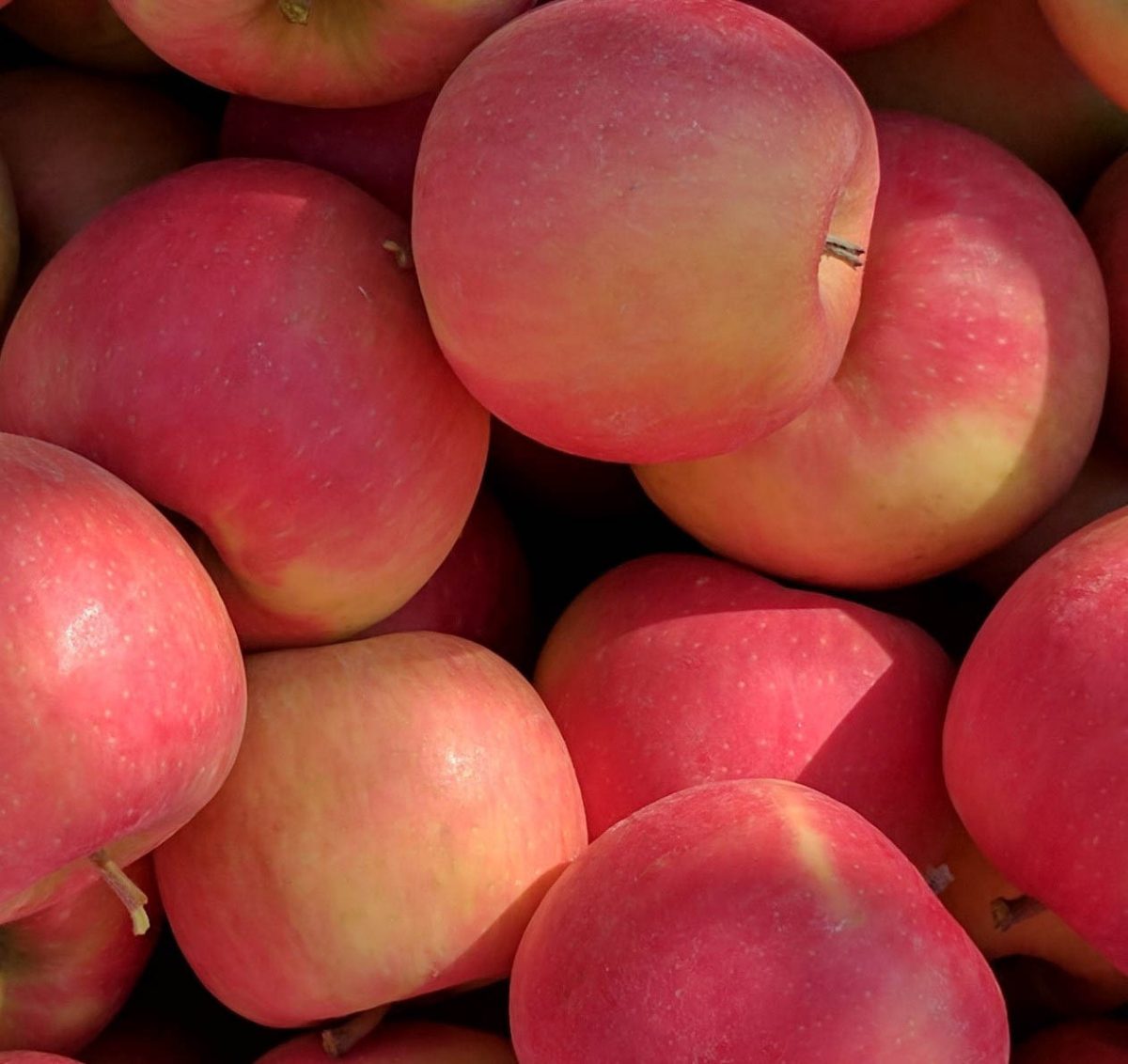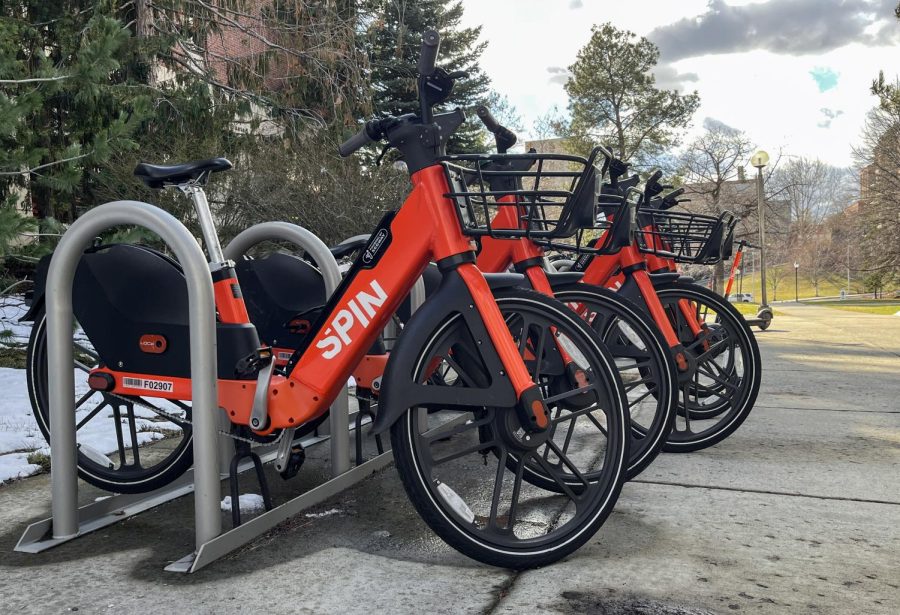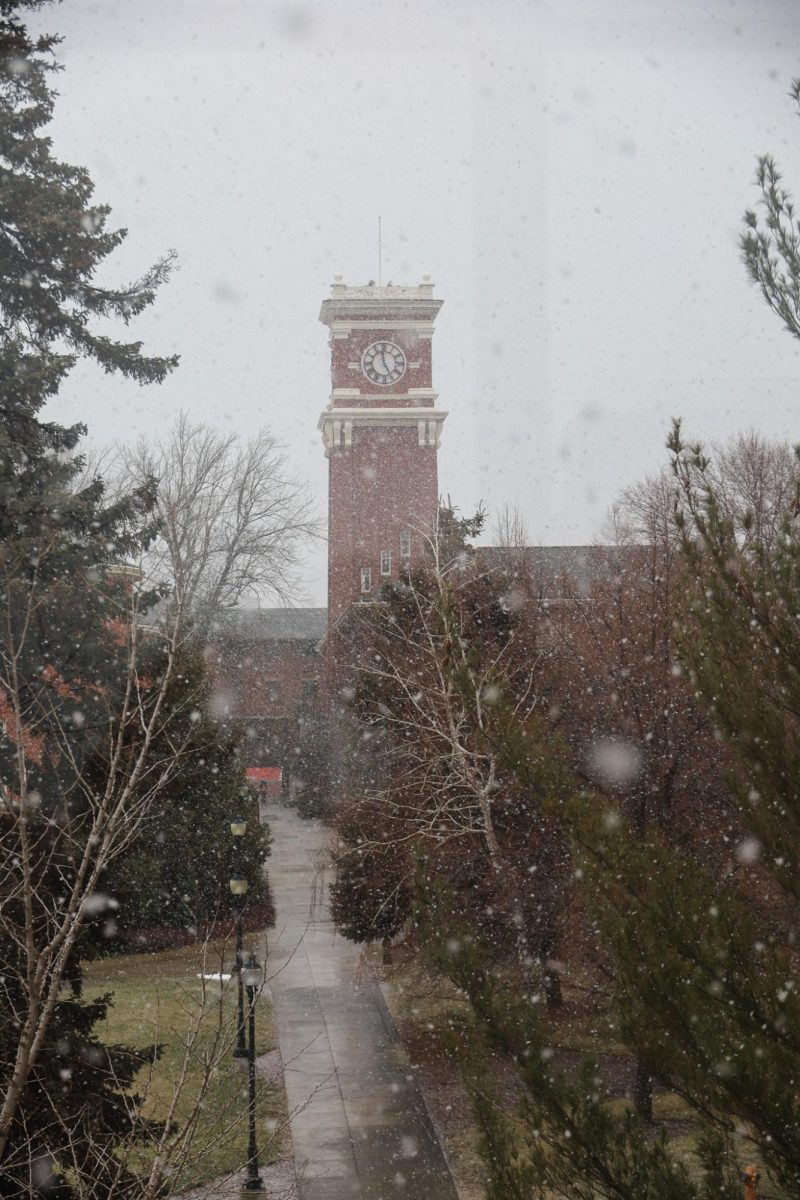The WA64 apple is the newest breed of apple to come out of the WSU apple breeding program, a program the university has a long history with, going back three decades.
WSU’s efforts to develop a superior apple, with an emphasis on high quality texture and storability, began in 1994. The idea was to develop new varieties that could handle the unique central Washington climate.
The program involves the hybridization of parents bearing certain desirable traits, according to Horticulture associate Professor Cameron Peace. This is a process known as micro-assisted plant breeding.
MAPB requires the development of genetic tests based on DNA, which helps predict specific traits, according to Peace. This allows breeders to determine the traits associated with specific attributes and to select the quality and productivity of their desired apple.
Most of the breeding and research happens at the Tree Fruit Research and Extension Center in Wenatchee. Horticulture professor Kate Evans is the Tree Fruit Team principal investigator.
Apples are an important part of the Washington economy, accounting for fully 16% of the state’s GDP in 2022, according to PRNewswire. Washington produces over 60% of the apples in the country, providing apples to all 50 states.
The first apple produced was WA 2, also known as Sunrise Magic. These apples were released in 2009. In 2017, WSU introduced WA38, also known as the Cosmic Crisp apple. WA38 was released to the public in 2019.
WA64, a cross between Honeycrisps and Pink Cripps, is expected to be ready for Washington farmers by 2029, said Jeremy Tamsen, CAHNRS innovation and commercialization director.
The apples have been licensed to the International New-Varieties Network, according to WSU. Washington farmers will be the only farmers in the United States licensed to grow WA64.









